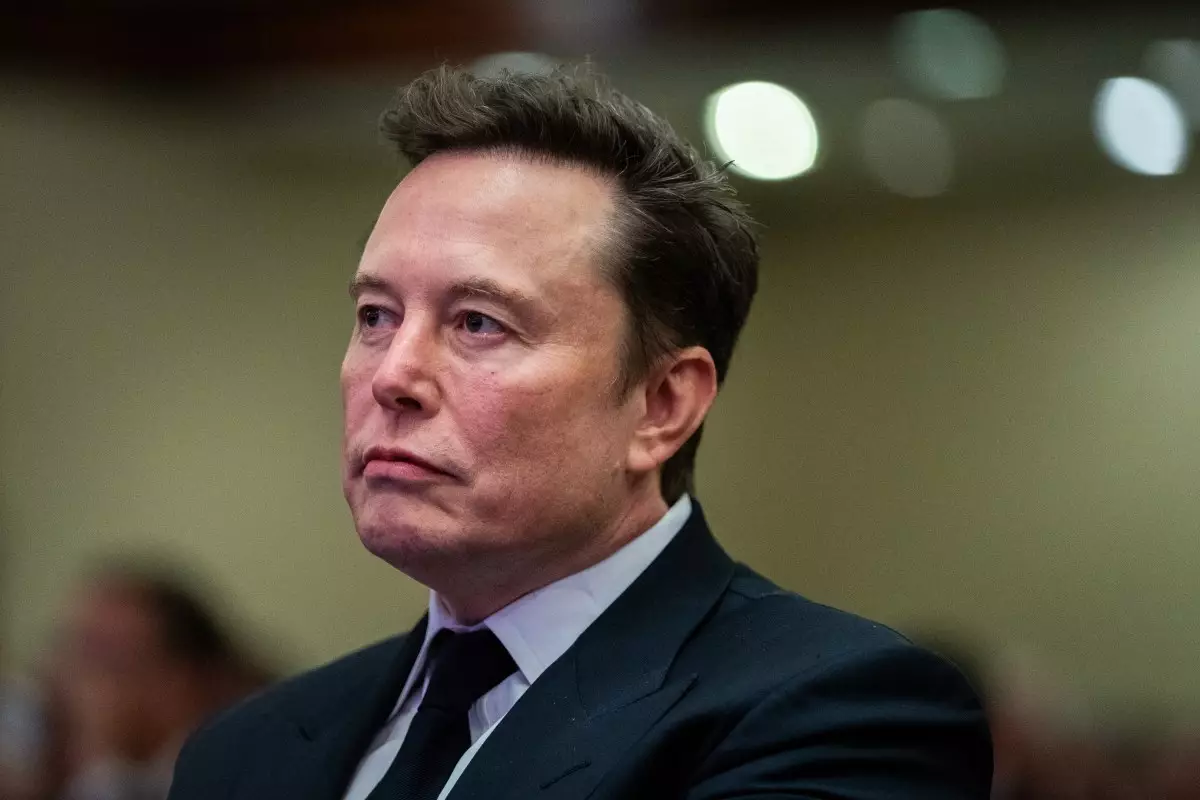The unfolding legal drama surrounding Elon Musk and OpenAI epitomizes the high stakes of artificial intelligence development and corporate governance. As Musk’s attorneys prepare to challenge the very nature of OpenAI’s operations, questions arise about the organization’s original mission, competitive practices in the burgeoning AI sector, and the evolving relationship between technology giants like Microsoft and startups in this dynamic field.
Elon Musk, recognized as one of the pivotal figures in tech innovation, has been embroiled in an ongoing conflict with OpenAI since his departure from the organization in 2018. Initially co-founding OpenAI with a mission to ensure that advanced AI technologies benefit humanity as a whole, Musk’s diverging vision has led him to launch his own AI venture, xAI. The core of this conflict revolves around allegations that OpenAI has diverged from its original nonprofit ethos into a for-profit model, an accusation Musk has vocalized in various legal motions.
Recently, Musk’s legal team filed for a preliminary injunction against OpenAI, its CEO Sam Altman, and Microsoft—a significant investor and collaborator with OpenAI. The lawsuit asserts that these entities are engaging in anticompetitive practices that, if left unchecked, may result in significant harm to both Musk’s interests and the broader competitive landscape of AI development.
The motion filed in the U.S. District Court for the Northern District of California details several serious allegations. Musk’s attorneys contend that OpenAI has actively discouraged investment into rival AI companies, especially targeting xAI, thus stifling competition. They emphasize the critical nature of this behavior on the future of innovation within the industry.
Additionally, the motion claims that OpenAI and Microsoft have improperly shared sensitive competitive information, enabling collaborations that disproportionately benefit them at the expense of other players in the AI ecosystem. Musk’s team asserts that the governance changes at OpenAI have fundamentally diluted its original mission, converting it into a more traditional corporate structure, one that prioritizes profits over the altruistic goals laid out at its inception.
These legal maneuvers reflect Musk’s broader concerns about the evolution of AI technologies—a subject he has been outspoken about, particularly regarding the potential risks they pose to society. He argues that allowing OpenAI to continue its current trajectory could ultimately undermine public trust in AI innovations.
Despite the allegations being wielded in the courtroom, Musk’s xAI has been making significant strides, recently closing a $5 billion funding round to support its vision of building safe AI technologies. This success may come as a counter-point to Musk’s claims of being systematically deprived of capital for his new venture. The investment landscape around AI remains competitive and fluid; while OpenAI has garnered substantial investment from Microsoft—reportedly upwards of $13 billion—xAI’s recent fundraising indicates that investor interest in AI technology remains robust.
Interestingly, Musk’s complaint highlights conflicts of interest, noting that key individuals within OpenAI have taken roles that could compromise the integrity of their operations. For instance, Altman’s alleged financial stake in Stripe, which OpenAI has chosen as its payment processor, illustrates the intricate web of affiliations that could lead to self-serving practices detrimental to the competitive environment Musk is advocating for.
The potential outcomes of this lawsuit could have long-lasting implications for the AI industry, particularly regarding how nonprofit organizations transition to profit-driven structures. Musk’s legal arguments emphasize the need for transparency and adherence to the foundational commitments made by entities like OpenAI, which were designed to promote equitable access to advanced technologies.
Musk’s attorneys argue that if the injunction is not granted, irreversible damage could be inflicted upon the AI landscape. They caution against the ramifications of OpenAI further entrenching its newfound profit-driven model, warning that it could stifle competition and innovation in AI development, resulting in a marketplace skewed in favor of a few powerful players.
As this legal battle unfolds, it raises pressing questions about ethics in AI development and the responsibility of corporations to uphold their foundational missions. AI technology sits at the intersection of immense potential and significant risk; therefore, accountability measures and ethical guidelines have never been more critical.
Musk’s proactive stance serves not only to protect his business interests but also to reignite discourse on the ethical implications of AI and the responsibilities of tech leaders. The case may be emblematic of a larger difficulty within the tech space: balancing innovation with ethical considerations while fostering healthy competition.
The complexities of this situation highlight the need for a careful reevaluation of how tech organizations govern themselves, interact with investors, and ultimately, how they align their operations with the public good. As the tech world continues to evolve, the outcomes of cases like this will undoubtedly shape the future of AI, corporate practices, and ethical standards in technology.

